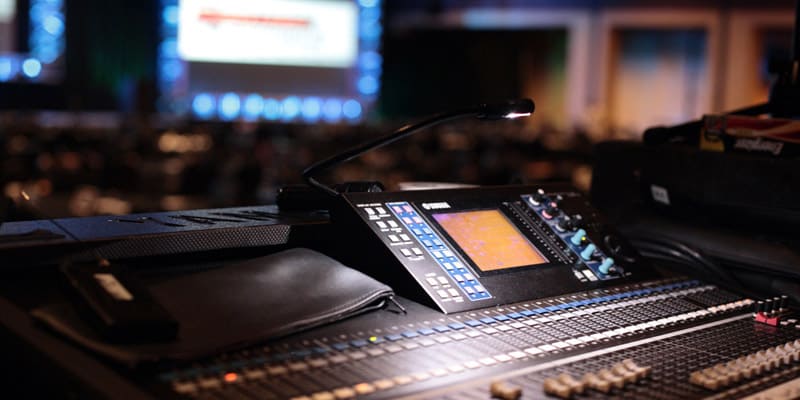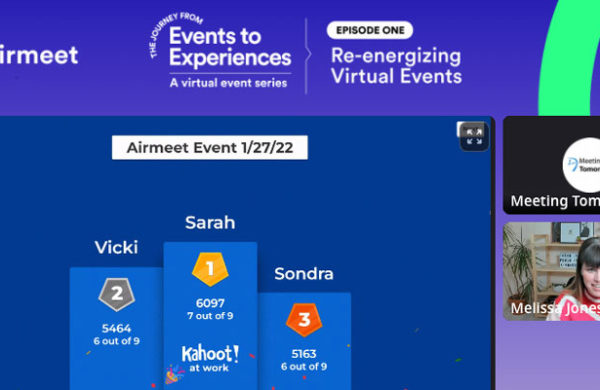
Holding your event at a venue that requires union AV labor (sometimes referred to as a union facility) significantly increases your labor costs when compared to using a non-union property. In some cases, it’s nearly double the cost. If there’s no way around it, be strategic in the early event planning stages by learning the local union rules and regulations.
Union facilities vary greatly in their requirements and it’s tough to figure out what the rules are because they differ across the country. Meeting Tomorrow services events nationwide and manages union crews from coast to coast. Although every location is different, here are some basic guidelines to keep in mind:
Location
When you’re planning your event in a major city (like Chicago, New York, San Francisco, Las Vegas, or Boston), know that you will have increased costs if you’re having the event at a venue that requires union labor for AV services. Not all properties in a union-heavy city may have union labor rules so it’s important to get that information in the contracting phase. Know your options within a city.
Bring In Your AV Partner Early
If you’ve chosen an AV union facility, you will be paying to use union labor. This doesn’t change if you’re using in-house AV or bringing in an outside AV provider. If you’re using an outside provider, bring them into the event planning process as early as possible. That includes the venue contracting phase!
They’ll be familiar with navigating unions and help guide you on important decisions you make early on, such as selecting event dates, developing your show agenda, and design/production possibilities. Plus, they can help you forecast labor costs if the same event is done year after year or replicated in different cities.
Exclusivities and Jurisdictions
Whoa, big words. Basically, know what kinds of things can only be handled by the in-house AV team, what specific work must be done by union labor, and what can be handled by non-union labor. An outside AV partner can consult with you on these nuances as they should be experts on what to expect with standard third parties.
Understand General Rules* to Avoid Penalties
Keep these things in mind when building out your agenda:
- Meals – if you need to eat, the crew needs to eat too.
- Breaks – build them into the speaker schedule and event agenda. Typically, 1-hour breaks must be given every 5 hours. Sometimes, the 1-hour break can be brought down to 30 minutes if food is provided at the start of the break. Also, 15-minute "coffee breaks" may be taken at the 2.5 hour mark.
- Overtime and Double Time – know when it kicks in so you can plan and budget accordingly. Overtime typically begins after a 7 or 8-hour shift, depending on location.
- Normal Business Hours – when your event starts, ends, and what day of the week it lands on matters. Normal business hours are generally 7am or 8am through 5pm, Monday to Friday. Shifts after 5pm, on weekends, or holidays can be charged at overtime or double time rates.
- Turnaround Time – think sleep time here. Typically, 8-9 hours of non-work is required between shifts. For example, the crew is onsite until 11pm and needs to be back at 6am the next day. That’s only 7 hours of non-work, so the next day can be charged at overtime or double time rates.
- Consecutive Days – Generally, an event that requires more than 40 hours in a work week is subject to overtime and double time rates. Sometimes, it’s flat out applied starting on the 6th day of a work week.
*Remember, union rules and regulations are different in every single location. We’ve listed general guidelines; you should always learn the specifics that apply to your event venue.
Specialty Personnel
If bringing in an outside AV provider, understand the roles of the AV team and the in-house crew. Labor shadowing or union supervision may be required for certain positions, and a technical lead position may be better staffed by the local union. Also, know that electricians are typically supplied by the venue.
Expect The Unexpected
Build unexpected costs into your budget. Schedules can run over, breaks can be missed, life happens. Having the budget allowance for unexpected onsite time is a smart approach.
You know what to keep in mind, now how do you actually do and learn these things? Talk with your AV provider – they can walk you through the nuances of working with union labor.
Remember, there aren’t any hard and fast rules; it varies tremendously across the country and even across cities. Understand and respect why unions exists, why rules and regulations have been developed, and plan accordingly.



